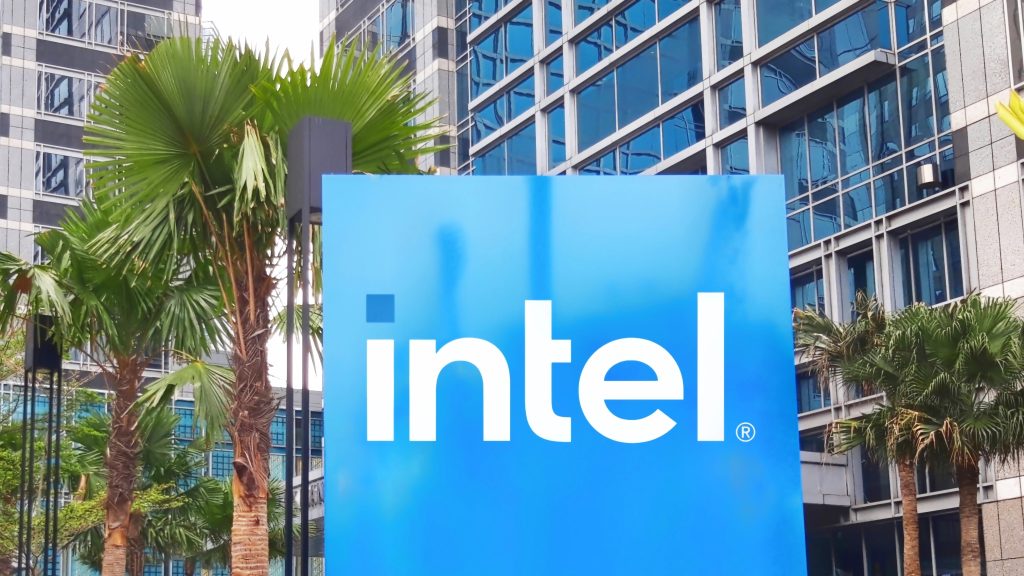Apollo Global Management Inc. is reportedly considering a substantial investment in Intel Corp., signalling confidence in the chipmaker’s ambitious turnaround strategy.
According to sources close to the discussions, the private equity giant is prepared to inject up to $5 billion into Intel, in a move that would mark a significant endorsement of the company’s efforts to regain its footing in the competitive semiconductor market.
The investment, described as “equity-like,” is still in preliminary stages, and Intel executives are weighing the offer, according to individuals familiar with the matter who spoke under the condition of anonymity. While talks are ongoing, nothing has been finalised, and the size of the investment could change. There is also the possibility that negotiations may fall through altogether, resulting in no deal.
This development comes at a time when Intel is already facing pressure from other quarters. Over the weekend, it was revealed that Qualcomm, a key rival in the semiconductor space, is exploring a potential friendly takeover of Intel. Such a move, if realised, would represent one of the largest mergers and acquisitions deals in the tech industry.
Both Apollo and Intel have declined to comment on the reported investment proposal.
Under the leadership of Chief Executive Officer Pat Gelsinger, Intel has embarked on a costly overhaul aimed at reclaiming its position as a leader in chip manufacturing. The company is focusing on developing new products, cutting-edge technologies, and attracting external customers to revitalise its operations. However, this transformative plan has come at a price. Intel’s recent earnings reports have fallen short of expectations, denting market confidence and wiping out tens of billions of dollars from its market capitalisation.
Apollo, best known for its insurance, buyout, and credit businesses, has a history of investments in distressed companies. The firm, which began as a distressed-investing specialist in the 1990s, may see Intel’s current challenges as an opportunity to position itself strategically within the tech space.
This isn’t the first time Apollo has partnered with Intel. Earlier this year, the Santa Clara-based chipmaker agreed to sell a stake in a joint venture involving a manufacturing plant in Ireland to Apollo for $11 billion. That deal was intended to bolster Intel’s factory expansion plans by attracting more external funding. The partnership marked a significant step in Intel’s efforts to finance its ambitious growth strategy, which includes expanding its global manufacturing footprint.
Apollo also has experience within the semiconductor sector, having led a $900 million investment in Western Digital Corp. last year. In that deal, Apollo acquired convertible preferred stock, showcasing its willingness to invest in tech companies undergoing strategic shifts.
Intel’s struggles in recent years have been well-documented. Once the dominant force in the global semiconductor market, the company has faced stiff competition from the likes of Taiwan Semiconductor Manufacturing Co. (TSMC) and Samsung, who have surged ahead in advanced chip manufacturing. Intel’s delays in rolling out its next generation of chips have given rivals the upper hand, forcing the company into a prolonged period of catch-up.
CEO Pat Gelsinger, who returned to Intel in 2021, has vowed to turn the company around. His strategy has centred on revitalising Intel’s manufacturing capabilities and building chips not just for Intel’s own products but also for external clients, such as automakers and tech firms. This shift marks a significant departure from Intel’s traditional business model, and while it has been welcomed by some investors, others remain sceptical, particularly in light of recent financial performance.
If Apollo’s investment goes ahead, it could provide Intel with the financial muscle it needs to press forward with its transformation plan. More importantly, it would serve as a vote of confidence from one of the world’s leading private equity firms, offering reassurance to shareholders and the wider market that Intel’s strategy has the potential to pay off in the long term.
At the same time, any potential involvement from Apollo will likely be closely scrutinised. Given Apollo’s history of distressed asset investment, questions may arise as to whether the firm sees Intel as a company in need of a major shakeup. However, Apollo’s previous collaboration with Intel suggests a more strategic partnership, one aimed at supporting the company’s long-term growth and innovation goals.
As Intel continues its efforts to regain ground in the competitive chip industry, the coming months will be crucial. Between the possible investment from Apollo and the looming takeover interest from Qualcomm, Intel is at a pivotal juncture. Whether these developments translate into a brighter future for the company remains to be seen, but the stakes have never been higher for one of the world’s most iconic tech brands.
The semiconductor industry, already under significant strain due to global supply chain disruptions and geopolitical tensions, will no doubt be watching closely as Intel navigates this challenging landscape. For now, the potential involvement of Apollo signals that there are still those who believe in Intel’s ability to engineer a successful comeback.


